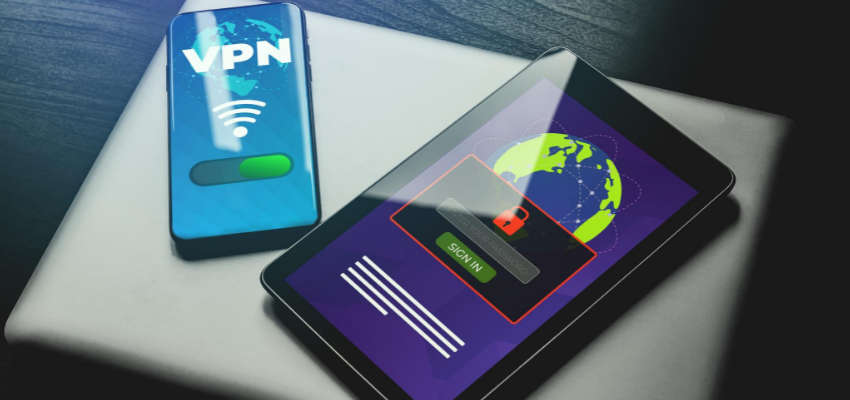Show:
VPN vs. Proxy Server: When and How to Use Each
VPNs and proxy servers accomplish the same goals for the most part. They both hide web traffic and prevent prying eyes. However, there are a few key differences that everyone should be aware of.

What is a VPN?
VPN stands for “virtual private network.” It encrypts web traffic by rerouting it through a different server location, making it nearly impossible for anyone to know exactly where the traffic is coming from. They are typically used when someone is on public Wi-Fi or on another untrusted network. It’ll prevent administrators from monitoring your traffic.
Others use VPNs to hide their web activity from their internet service provider. But, of course, ISPs aren’t the only ones harvesting your data, either. Certain apps and computer programs will also monitor your traffic, but a VPN helps protect you from these spying eyes as well.
In addition to these common uses, VPNs also add an extra layer of security for schools. Schools also use VPNs to allow their students to access restricted web pages that require the school’s IP address. Businesses can also use VPNs for similar reasons, allowing their employees to remotely access sensitive data.
Here are a few more benefits of using a VPN:
- Location spoofing
- Bypass geo-blocking
- Avoid ISP throttling
- View foreign apps and streaming services
There are many reputable VPNs for consumers to choose from.

What is a Proxy Server?
Proxy servers, like VPNs, can work as an additional layer of security between your network and the internet. It’s a system that acts as a gateway between the network and the internet. However, proxy servers can work on a by-application basis, unlike VPNs, only acting as a middleman for the apps you designate.
Specifically, a proxy server takes data in through one port and transmits it to your network through another port. This prevents malicious attackers from having direct access to your machines and network.
In addition to stopping malicious attackers from interfering with your network, it can also be used to block people from accessing certain websites. This makes it a great option for concerned parents. A proxy can also work as a caching system, saving certain data from websites and storing them for later use.

VPN vs. Proxy Server
Although very similar in their function, the methods couldn’t be more different. This also means that some people will require a VPN, and some will prefer a proxy server. VPNs are useful when you want to hide traffic from outside sources; proxies are useful when you want to prevent outside sources from accessing your network directly.
When you Should use a VPN
A VPN should be used when you don’t want your ISP to monitor your web activity. For example, it could be used when you are viewing or downloading content that might result in your internet access being restricted. It can also prevent data-crawling apps, like certain social media platforms, from collecting information about you.
When you Should use a Proxy Server
A proxy server is great for securing a home or business network, preventing children from accessing certain websites, and just generally keeping your internet browsing a safer experience. In addition, a proxy server can be a valuable part of a firewall.
VPNs are Easier to use
Setting up a VPN is much easier than setting up a proxy server. Proxy servers require quite a bit of knowledge concerning computer hardware and routers. On the other hand, using a VPN is as easy as downloading the appropriate software and turning it on.
This doesn’t mean all VPNs are created equal, though. Some VPNs have a clear advantage over others regarding functionality and features. For example, below are just a few of ExpressVPN features:
- Offers 94 countries to switch to
- IP address masking
- You can use it on multiple devices
- 24-hour live support
- Split tunneling
- No activity logs
ExpressVPN even comes with its own set of tutorials to help users understand and utilize all the features they offer.

 Return to Previous Page
Return to Previous Page








